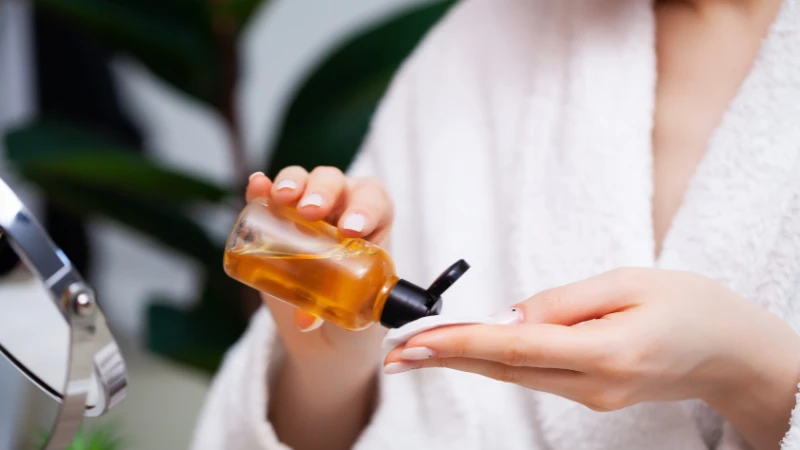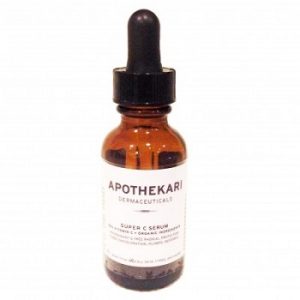The face toner has been around for a long, long time. Once, it was deemed an essential component of a good skin care routine. But is it necessary today?
What is Face Toner and How Do You Use It?
Face toner is a liquid skincare product that can play lots of different roles in your skincare routine depending on the ingredients that they contain. They’re often promoted as a way to remove ‘impurities’ or residual dirt that may be left behind on your face after cleansing. But, if you’re cleansing properly, and removing make-up first. Or, if you’re double cleansing, this step of toning seems a bit redundant.
What Does a Toner Do for Your Face?
In addition to removing left behind dirt, toners claim to hydrate, prime or sooth skin. As well, they are promoted to help your moisturizer absorb fully. And then, there are toners filled with additional active ingredients—salicylic acid for example—that may be used as treatments for some skin conditions, like acne.
Is Face Toner Necessary?
Without coming across as wishy washy, the best answer is that it depends. Toners have traditionally been applied after cleansing for two reasons mainly:
- Getting rid of dirt that remains post washing, as mentioned above
- To pH balance the skin. However, most cleansers—and skincare products in general—are pH balanced today, making this step unnecessary.
Older face toners often contained high concentrations of alcohol and had an astringent effect— drawing water out of your skin’s tissues—helping to minimize the appearance of your pore size and reducing sebum levels. But they were often very harsh for dry or sensitive skin types. Today, toners tend to be water-based products and made with a variety of ingredients that can help to hydrate, protect, soothe, brighten, remove excess oil or reduce breakouts. Ingredients may include:
- Glycerin to moisturize
- Hyaluronic acid to increase hydration
- Antioxidants to protect
- Bisabolol to calm
- Alpha and beta hydroxy acids to exfoliate and reduce blemishes
- Retinoids to boost collagen
What Happens if You Don’t Use Toner?
The short answer is, very little. If you’re following a consistent skin care regimen made up of products that work for your skin and that deliver results, then a toner is redundant as the other treatments will contain ingredients to make up for the absence of toner.
When Should I Use Toner?
As mentioned above, there’s no burning reason to apply toner. However, if it’s a product that you love; it isn’t duplicating ingredients in your serum, moisturizer, etc, or is a formulation designed to address a specific skin concern, then go at it!
Do Dermatologists Recommend Toner?
Most skin care professionals, including dermatologists agree that you can skip the toner. Unless, of course, it contains ingredients that specifically proven to help improve a skin condition. Acids for managing acne and blemishes, and hydrating ingredients for soothing dry skin are the most common beneficial uses for toners. Regardless of which toner you choose to use, avoid those that are highly alcohol-based as they are too drying, even if you have an oily complexion.
Can I Skip Toner and Use Moisturizer?
A resounding yes. As we’ve discussed in this post, toner is an optional skincare product that for the most part, has been replaced by others like serums and even your daily moisturizer. Moisturizers today often contain a combination of effective ingredients including:
- Humectants, which attract moisture to your skin
- Emollients (generally oils), which soften and smooth skin
- Occlusives, which help to protect your skin’s natural barrier system by preventing moisture loss and keeping it safe from harmful external irritants.
If you’re using a ‘moisturizing’ toner, a good moisturizing cream and lotion can generally replace it.
Can I Skip Toner and Use Serum?
Another yes. Serums are widely available and come in a range of formulations with a variety of ingredients to help address most skin care concerns. The great thing about serums is that they tend to be lightweight, making them suitable for all skin types and ideal for layering under (or over) other treatments. Plus, they often contain more than just one ingredient, making them a more efficient—and cost effective—way to deliver skin benefits. So the next time, you ask yourself “Do I need a face toner?” consider that while they aren’t essential in your skin care routine, that they can make for a good supporting act. If you’re into that kind of thing.






